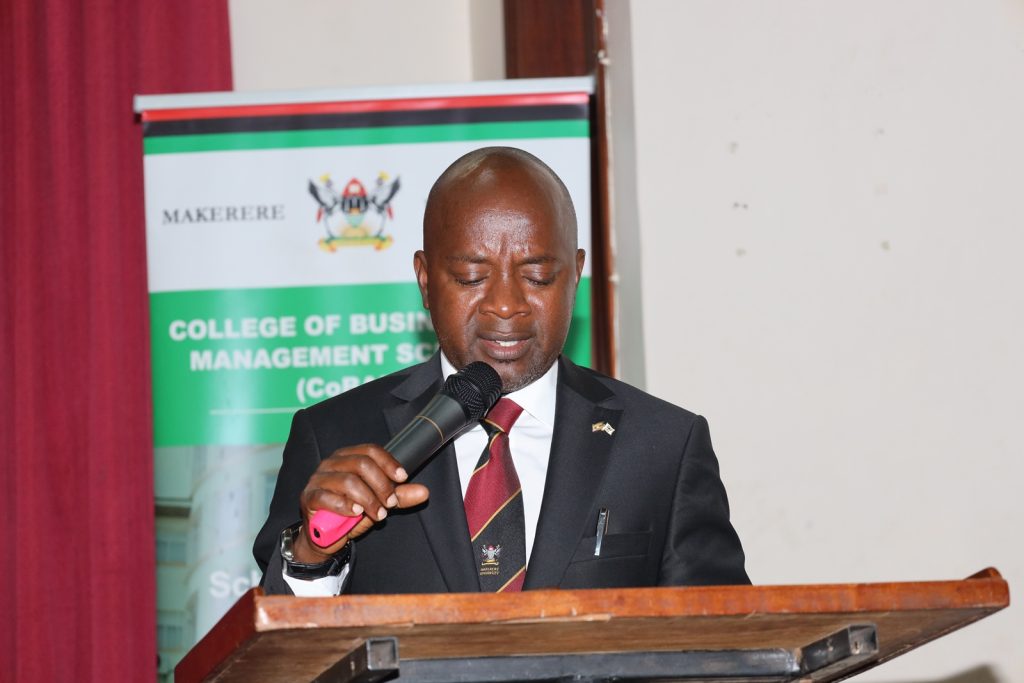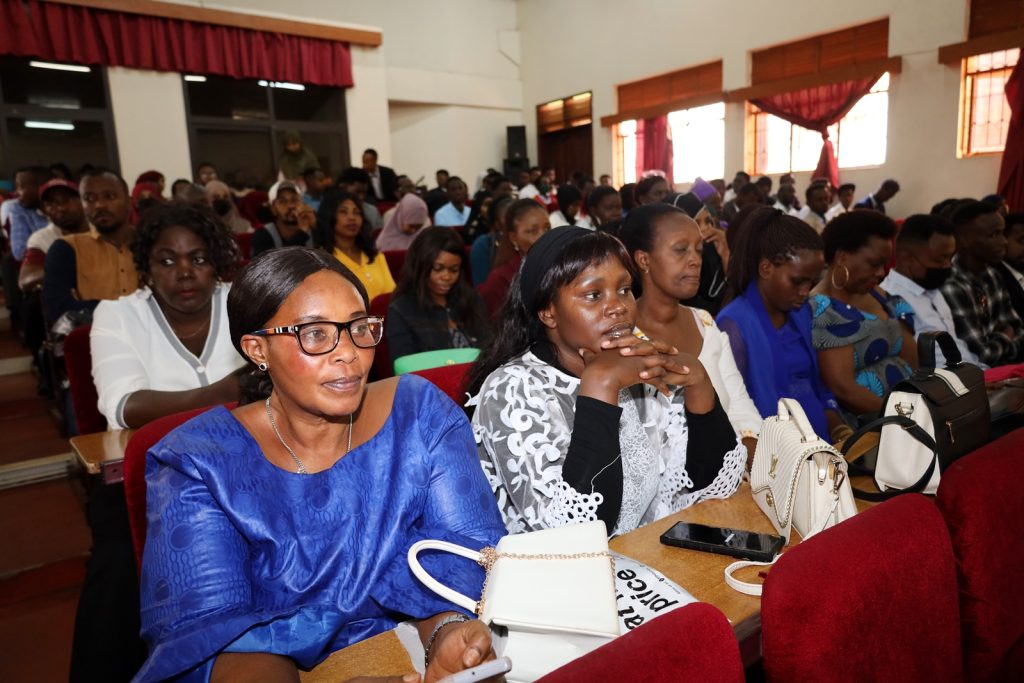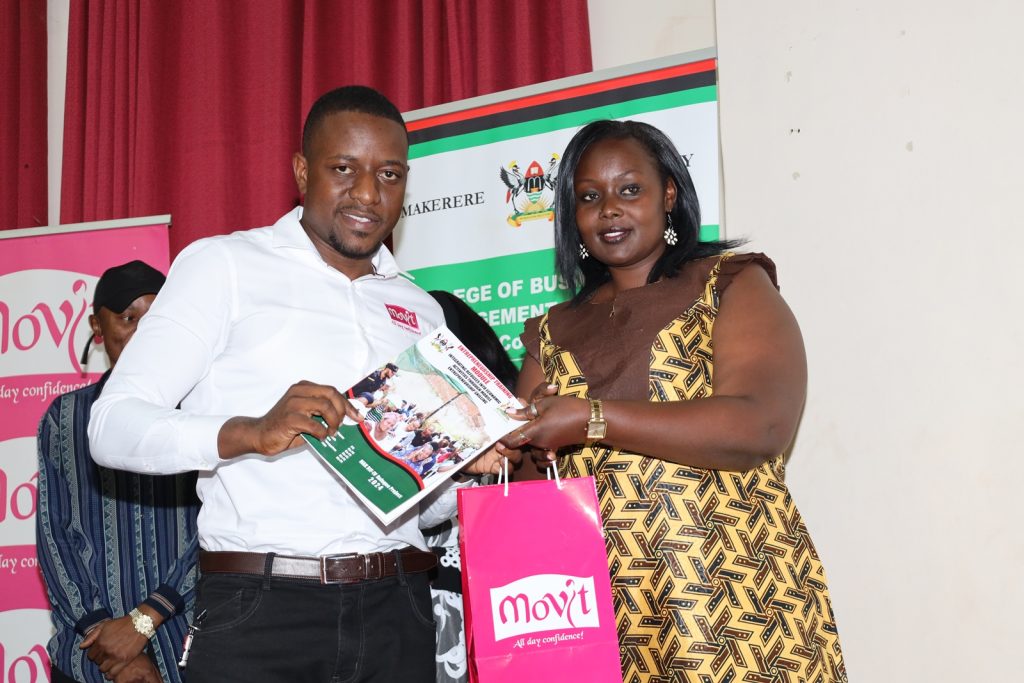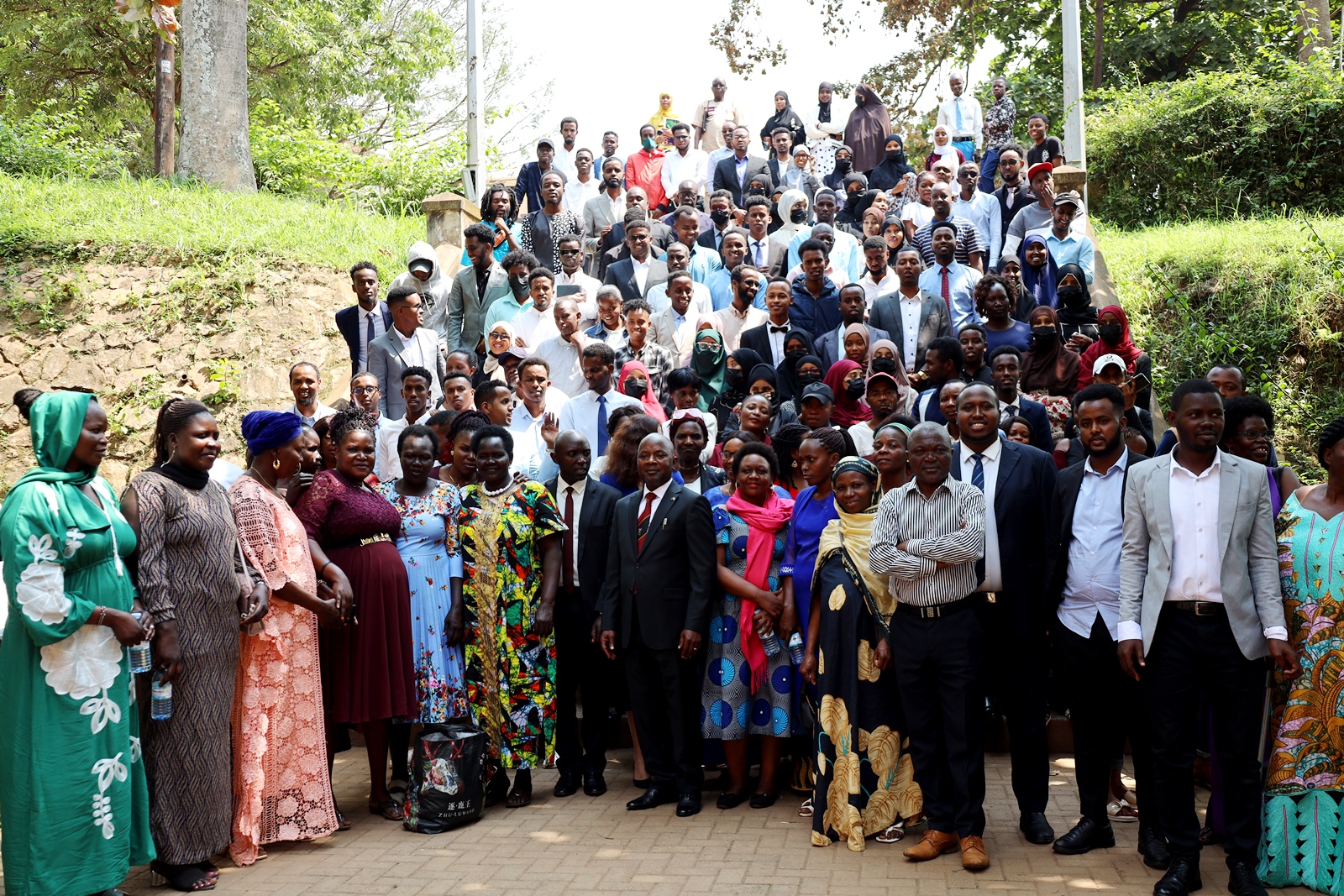Makerere University through the college of Business and Management Sciences has equipped over 400 refugees with entrepreneurial skills and awarded them certificates.
The six-month training has seen refugees from over 10 African countries benefit from a project spearheaded by Dr. Anthony Tibaingana.
Dr. Tibaingana said that he conceived the idea in 2019 following research about refugees in which he found that they are one of the vulnerable groups that need help improving their livelihoods.
“They were trained to generate business ideas, to develop the ideas and also market the ideas and transform them into real businesses,” Dr. Tibangana said on January 20, 2024.

Dr. Tibaingana said he wanted refugees to be self-reliant and grow economically to support their families and also thrive economically in the business arena.
“We awarded them certificates such that even when they leave this country and go to other countries, they will have a skill that they can use to survive,” Dr Tibaingana said adding, “Uganda is the second country in hosting refugees and there is need for avenues to integrate the refugees into economic activities to reduce on the crime rate in the country.”
The Bondeko Refugee Livelihoods Center’s Chairperson, Ms. Patricia Driver, was the guest of honor at the event, advised the beneficiaries to make the most of what little they have while they wait for financial support to arrive.
“Think about working together because, at the end of the day, we are always strong when we are together. Everything on this earth starts small. This is a new start for all of you to change your lives. Be ambassadors of your fellow refugees who did not make it to this training and stay committed to changing your lives and those of your families once and for all,” Ms. Driver said.

Dr. Jude Thaddeo Mugarura, the head of Department Marketing and Business at COBAMS, said they were committed to supporting the refugees in their businesses even after the training.
Additionally, Dr. Mugarura mentioned that they would continue to provide mentorship and guidance to ensure the refugees’ success in their entrepreneurial endeavors.
In addition to praising Dr. Tibaingana for his research, Mr. Ezra Byakutangaza, a representative of the Makerere University Research and Innovations Fund (Mak-RIF), promised on behalf of the Fund to continue funding any projects that have an impact on the lives of the nation’s most vulnerable citizens.
He also highlighted the potential for these projects to create a positive ripple effect, not only improving the lives of refugees but also contributing to the overall development and prosperity of the nation.
During the training, the research team partnered with Movit Products Limited to provide practical hands-on experience and networking opportunities for the students.
Mr. Robert Ggoobi Kitenda, the head of marketing Africa at Movit Products Limited, said their partnership with Makerere in training these refugees was to help them create jobs and have income-generating businesses that could support their families.
“We want you to use reliable products that will keep your clients and also market your businesses to prospective clients. What we have given you is knowledge and that is your compass. If you follow your compass, you will be able to live up to your expectations,” Mr. Ggoobi said.

Many refugees are not recognized even though they have qualifications from their home countries, according to Ms. Samantha Simbi, Administrative Assistant at the Association of Refugees with Disabilities in Najjanankumbi (ARD). However, since they have received training from Makerere University, they are now prepared to even apply for jobs.
Ms. Simbi highlighted that the lack of recognition of refugees’ qualifications often leads to underemployment or unemployment. She further emphasizes that the training they received from Makerere University has equipped them with the necessary skills and knowledge to compete in the job market, increasing their chances of securing employment opportunities.
Ms. Everline Amokol, the Monitoring, Evaluation, Accountability and Learning (MEAL) Officer, at the Bondeko Refugee Center, urged the refugees to seize the chance to start over and seek out new opportunities rather than giving up because they were no longer in their home countries.
“Don’t deny yourself social lives because you never know what will happen tomorrow. Try to forget the trauma that you are a refugee,” she added.
Mr. Ismail Ibrahim Ali Mohammed, the leader of the Somali community, said they will use the skills and knowledge gained to change their economic narrative and tap into opportunities available in Uganda.
“Today marks not just the end of our academic endeavors but the commencement of a thrilling adventure in the world of innovation, risk-taking, and leadership,” Ali Mohammed said.
He added: “In the realm of business, we are not merely graduates: we are architects of our destinies, builders of enterprises, and visionaries of change. The skills we have acquired here from financial acumen to strategic thinking, serve as the foundation for the challenges that lie ahead.”
Ali Mohammed tipped the graduates to collaborate and network with one another while embarking on the new journey of business.
“Build relationships, look for other viewpoints, and never undervalue the strength of a cohesive team. Collaboration fosters creativity and moves us closer to common success in today’s linked world, the speaker said.
The trained refugees originate from Somalia, DR Congo, South Sudan Burundi, Rwanda, Tanzania Comoros, Kenya, Ethiopia and Eritrea. The training took place in different communities including Kisenyi, Najjanakumbi, Kawempe, and Kireka among others.
This is the second time Makerere University is offering training to refugees in entrepreneurial skills, with the first cohort having graduated in 2021/2022 financial year from which over 300 people were trained.
This time, out of the 435 trainees, about 130 were Ugandans who live in refugee communities as per the 2006 Refugee Act as amended, that calls for the training of 30 percent of local people when training refugees in any activities.
Research team
- Dr. Anthony Tibaingana (PI)
- Ms. Nantale Hanifah
- Ms. Betty Tuhaise
- Prof. Faisal Buyinza
- Ms. Catherine Twongyeire.
- Mr. Ronny Mulongo

